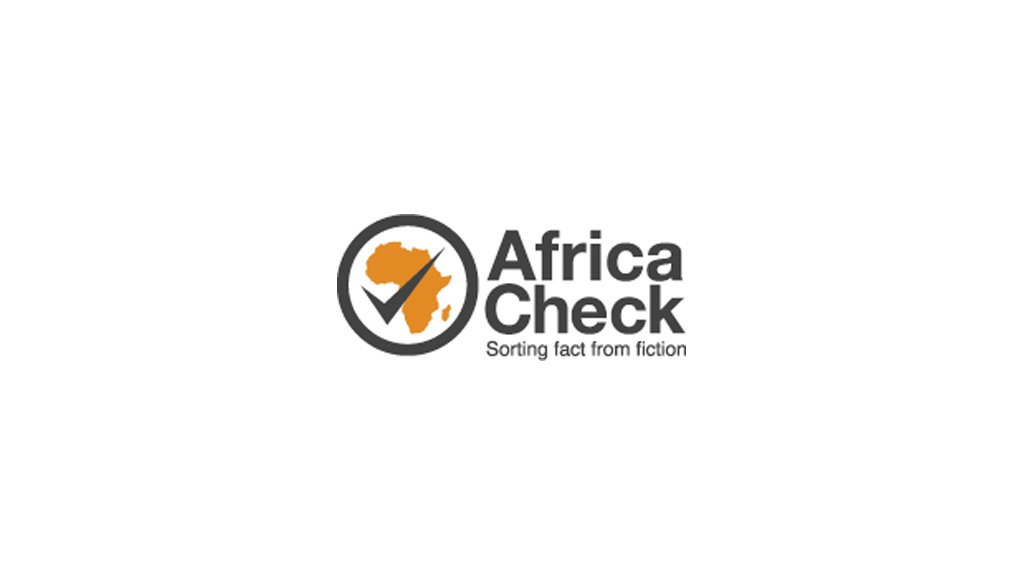In one of his regular columns, veteran Nigerian journalist Dele Sobowale questioned whether his government was ready to provide for a growing nation.
Pointing out that the population was increasing by 6 million people a year, he raised concerns about security, education, healthcare and housing, and claimed that close to 80% of Nigeria’s population lack potable water.
Sobowale has not responded to Africa Check’s request for clarification of his claim, and its source.
Is Nigeria’s water supply really this bad?
Setting standards for drinking water quality
Chief of water, sanitation and hygiene at the UN Children’s Fund (Unicef) Nigeria, Zaid Jurji, told Africa Check that “potable” water is water that is suitable for drinking.
Nigeria’s standards for drinking water quality, revised in April 2018, set out minimum requirements that “all drinking water shall at any time meet”. Supplying water that does not meet the requirements is an offence.
The requirements include the smell and taste of the water, and limits to the amounts of minerals and chemicals – like detergents and chlorine – that may be present in the water. They also order that no E coli bacteria may be found in drinking water.
The bacteria Escherichia coli is commonly found in the human intestine. Most types are harmless, but some can cause diarrhoea, food poisoning and disease if consumed in contaminated food or water.
Tested water for the first time
Experts told Africa Check that the best and most recent data on Nigeria’s water quality was in the county’s 2016/17 multiple indicator cluster survey.
As part of the survey, and for the first time, Nigerian households’ cooking and drinking water was tested for E coli. The survey measured the amount of bacteria in the water, both at home and at the water’s source.
More than 37,000 households were visited between September 2016 and January 2017. Information on water quality was collected for a nationally representative sample of 13,605 household members, Dr Isiaka Olanrewaju, director of household statistics at the National Bureau of Statistics, told Africa Check.
Close to two thirds of household members (64.1%) had access to improved water sources, such as piped water, boreholes and collected rainwater.
High levels of bacteria found
But the survey also found that 90.8% of household members drank water contaminated to some degree by E coli bacteria, whether their water came from improved water sources or unimproved ones (such as tanker trucks and unprotected wells).
Some 77.3% of household members’ drinking water was contaminated by the bacteria at source.
The increase in contamination between source and household shows that contamination takes place when water is stored or transported, Yohannah Audu, a water, sanitation and hygiene consultant for Unicef, told Africa Check.
Only 3.7% had the best-case scenario, in line with the Sustainable Development Goal 6, of an improved drinking water source located on the premises, free of E coli and available when needed.
That is not to say everyone was equally in danger of falling ill. The survey divided the results into categories of risk:
Low (less than 1 CFU* per 100 millilitres of water): 22.7%
Medium (1-10 CFU per 100 millilitres): 16.3%
High (11-100 CFU per 100 millilitres): 14.6%
Very high (more than 100 CFU per 100 millilitres): 46.4%
* CFU stands for colony-forming unit, a measure of bacteria.
Conclusion: 90.8% of Nigerians lack potable water
Journalist Debe Sobowale wrote in a column that close to 80% of Nigerians “lack potable water” – water that is safe for drinking.
The country’s 2016/17 multiple indicator cluster survey found that 90.8% of household members drank water contaminated to some degree by E coli bacteria, which may cause sickness.
In the contaminated water samples, 23% had low levels of bacteria, 16% medium levels, 15% high levels, and 46% very high levels – putting people at serious risk.
We therefore rate Sobowale’s claim as understated.
Researched by Allwell Okpi, Africa Check, a non-partisan fact-checking organisation. View the original piece on their website
EMAIL THIS ARTICLE SAVE THIS ARTICLE
To subscribe email subscriptions@creamermedia.co.za or click here
To advertise email advertising@creamermedia.co.za or click here











